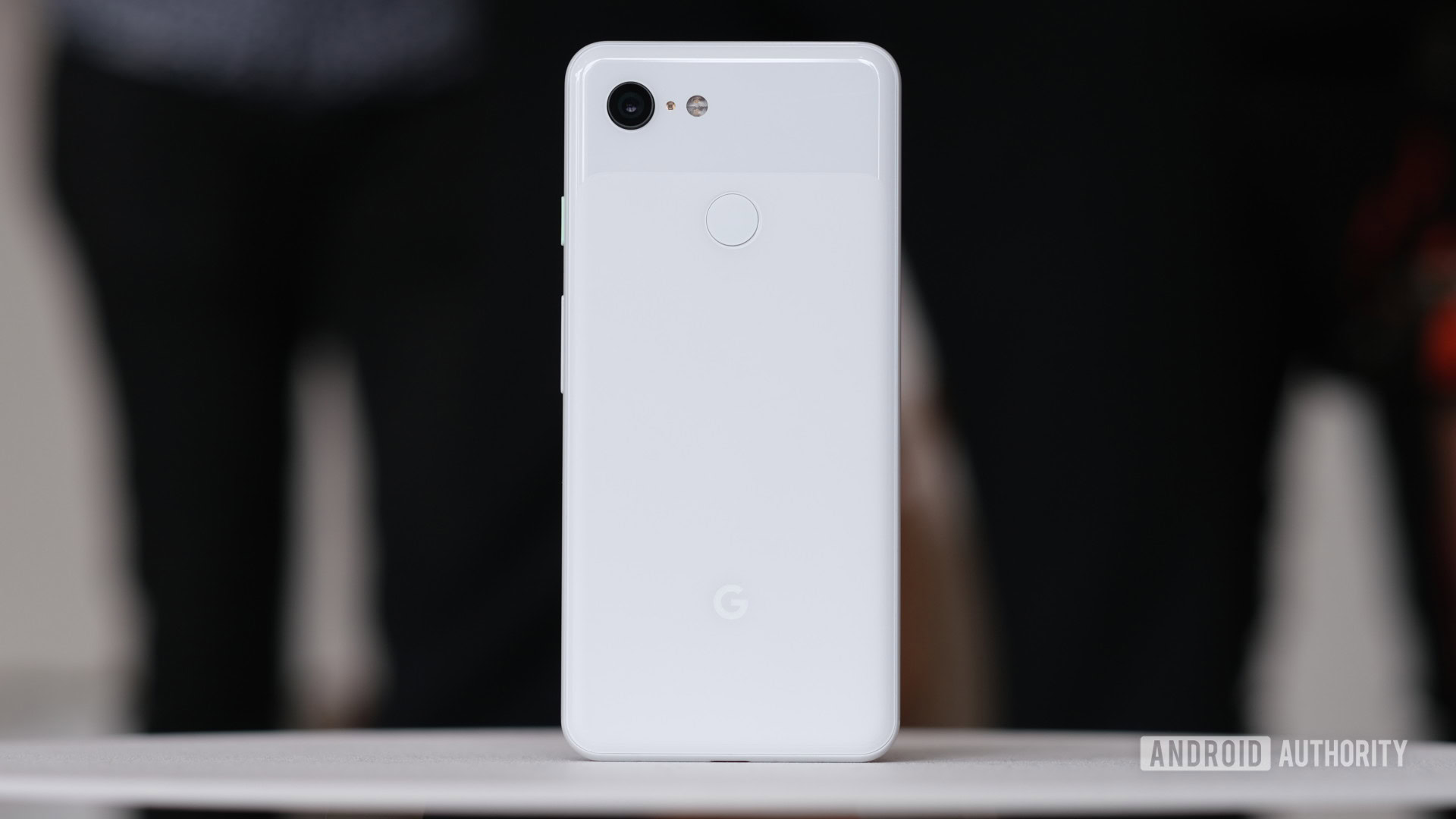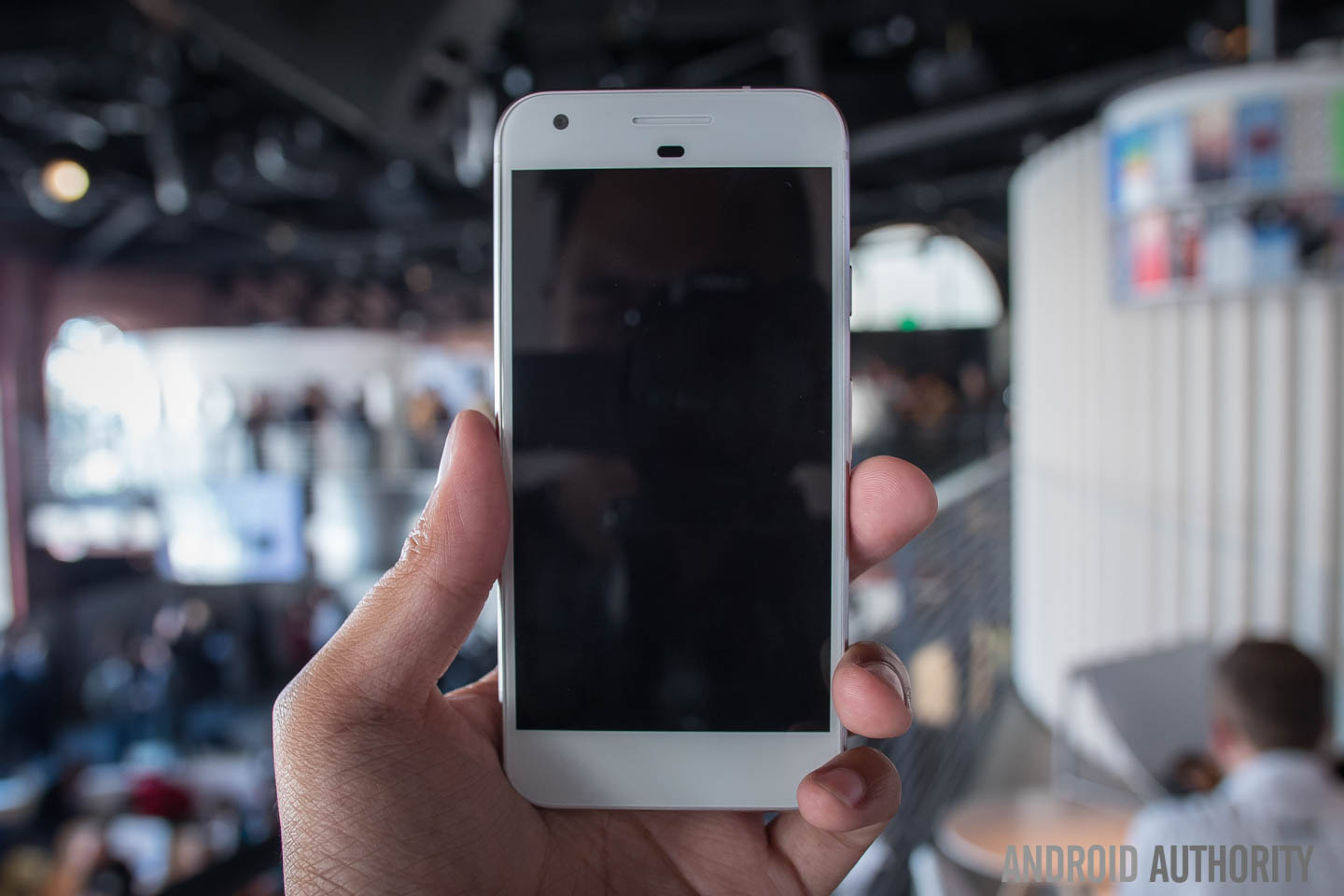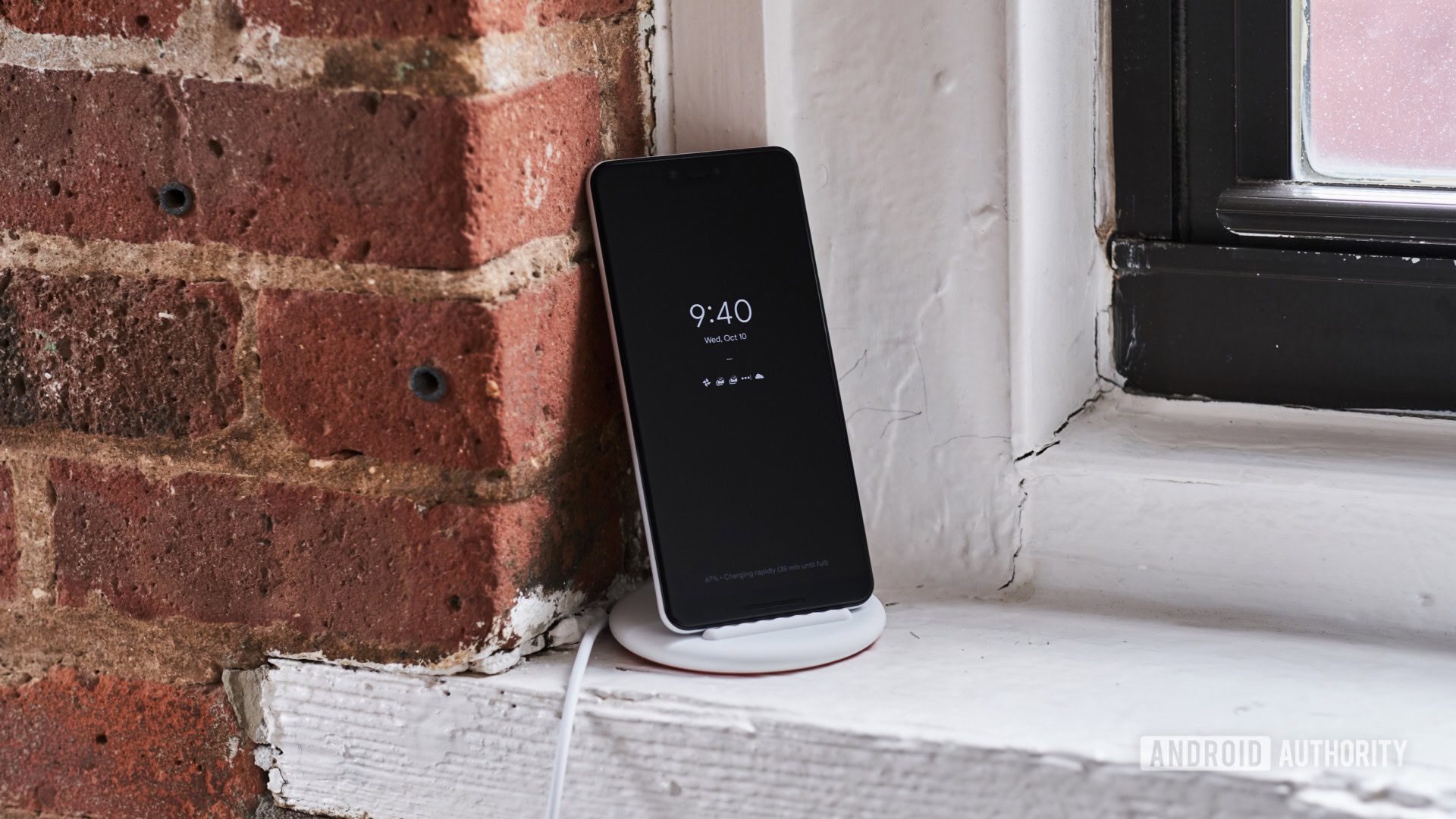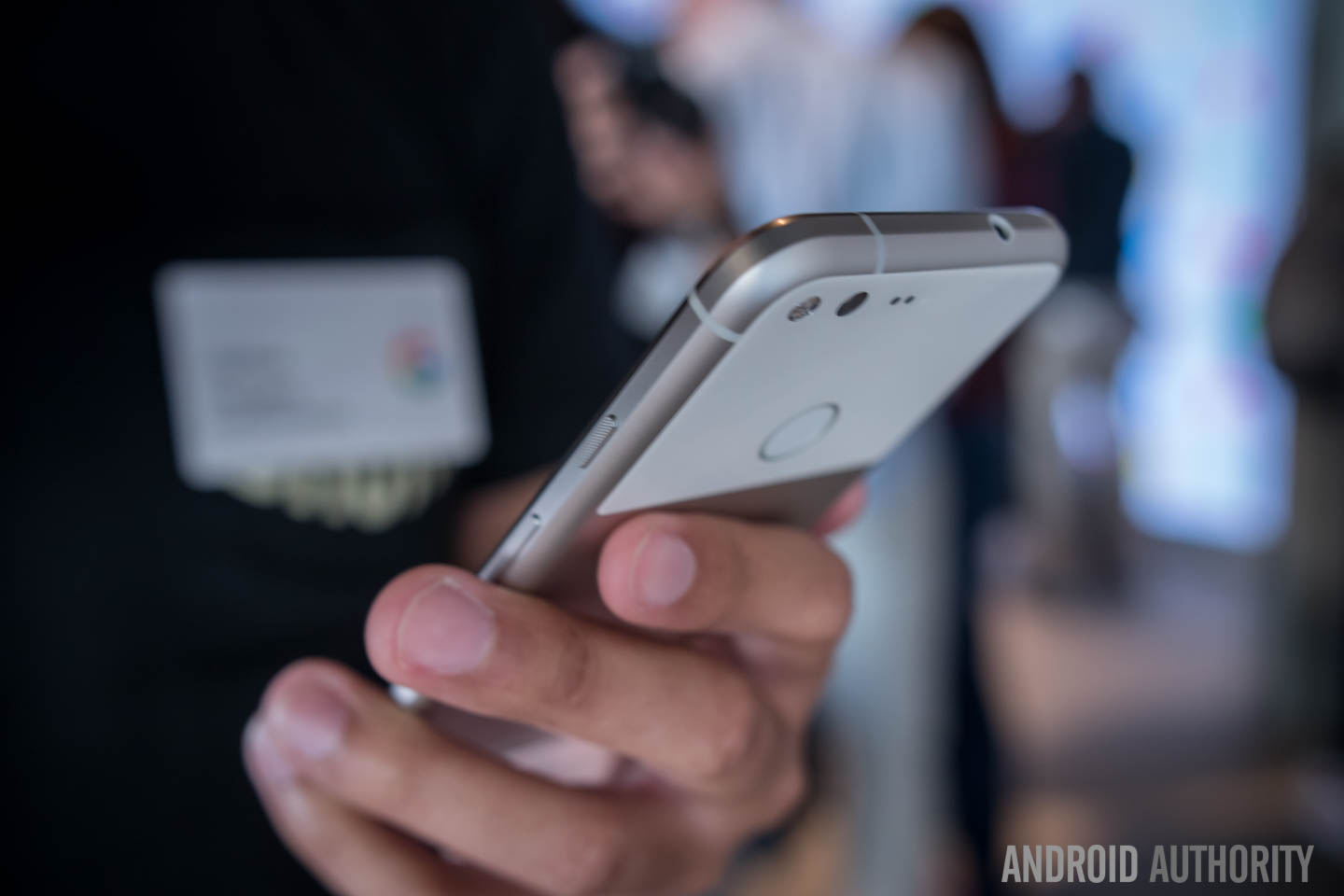Affiliate links on Android Authority may earn us a commission. Learn more.
Should you replace your aging Google Pixel with a new Pixel 3?
Published onJanuary 1, 2019

While you’re seeing tons of Pixel 2 vs Pixel 3 comparisons hit the web, the reality is that many folks wait more than a year before buying a new phone. The first Pixel phone is now two years old, and many of you are likely ready to upgrade if you haven’t already.
So here is the big question: is the Pixel 3 the best upgrade choice for you?
Specs: Google Pixel 3 vs Pixel

It’s been over two years, so obviously the Pixel 3 offers a massive spec upgrade. Here’s a quick look at the hardware and software specs for the new Google Pixel 3 compared to the original Pixel:
| Google Pixel 3 | Google Pixel | |
|---|---|---|
Display | Google Pixel 3 5.5-inch flexible OLED 1,080 x 2,160 resolution 443ppi Gorilla Glass 5 18:9 screen ratio | Google Pixel 5.0-inch Full HD AMOLED 1,920 x 1,080 resolution 441 ppi Corning Gorilla Glass 4 16:9 aspect ratio |
Processor | Google Pixel 3 Qualcomm Snapdragon 845 Pixel Visual Core | Google Pixel Qualcomm Snapdragon 821 |
RAM | Google Pixel 3 4GB | Google Pixel 4GB |
Storage | Google Pixel 3 64GB, 128GB | Google Pixel 32GB, 128GB |
Cameras | Google Pixel 3 Rear: 12.2MP, f/1.8 aperture, 1.4 micron pixels, OIS and EIS, spectral and flicker sensor Front: Main: 8MP standard angle (75-degree FOV), f/1.8 aperture, auto-focus Secondary: 8MP wide-angle (97-degree FOV), f/2.2 aperture, fixed-focus | Google Pixel Rear: 12.3 MP sensor, 1.55 μm pixel size, and f/2.0 aperture, laser + phase detection autofocus Front: 8 MP sensor, 1.4 μm pixel size, and f/2.4 aperture |
Audio | Google Pixel 3 No headphone jack Audio over USB Type-C | Google Pixel 3.5mm headphone jack |
Battery | Google Pixel 3 2,915mAh | Google Pixel 2,770mAh |
IP rating | Google Pixel 3 IP68 | Google Pixel IP53 |
Software | Google Pixel 3 Android 9 Pie | Google Pixel Android 7.1 Nougat, update to 9.0 Pie |
Extras | Google Pixel 3 Dual front-facing speakers Active Edge Wireless charging Pixel USB Type-C earbuds included | Google Pixel Single bottom-facing speaker |
Colors | Google Pixel 3 Just Black, Clearly White, Not Pink | Google Pixel Very Silver, Quite Black, Really Blue (Limited Edition) |
Dimensions and weight | Google Pixel 3 68.2 x 145.6 x 7.9mm 148g | Google Pixel 69.5 x 143.8 x 8.6mm 143g |
Reasons to upgrade from Pixel to Pixel 3

Much bigger screen, only slightly bigger phone: The actual dimensions of the original Pixel are not that much different compared to the new Google Pixel 3, but the Pixel 3 happens to rock a much larger 5.5-inch dispaly. This is due to the switch to an 18:9 aspect ratio, as well as an all-around reduction of the bezels. The Pixel 3’s screen also uses the more advanced OLED display compared to the AMOLED display found on the first Pixel.
Faster processor and the Pixel Visual Core: The Google Pixel was released in 2016 with the fastest mobile processor for Android phones at that time; the Qualcomm Snapdragon 821. Not only does the Pixel 3 have a much more powerful processor on board in the Snapdragon 845, but it also has the Pixel Visual Core, a chip designed by Google that was made to help enhance the phone’s image capabilities.
Better cameras: While both the original Pixel and the Pixel 3 still have a single rear camera on board, it’s a greatly improved sensor and sure to be a massive upgrade from the original Pixel. The Pixel 3 also makes a big change by throwing in dual front-facing 8MP sensors. You have a standard camera up front, plus a second wide-angle sensor, which means that Pixel 3 owners will be able to take selfies with more people in the picture.
Wireless charging: While the battery size hasn’t changed that much between the original Pixel and the Pixel 3, the new phone finally supports wireless charging for the first time in the Pixel’s short history. It will work with any Qi-based wireless charging pad or stand, including the new Pixel Stand that Google is also selling.
Water and dust resistance: While the original Pixel was IP53 rated, that basically meant it could handle some raindrops or a quick spill. It certainly couldn’t survive full immersion. The Pixel 3 has a much higher IP68 water and dust resistance rating. That means the phone should still work even when emersed in a pool of water up to 1.5 meters deep for up to 30 minutes. In other words, if you are at the pool, the Pixel 3 should be OK if you accidentally drop it in the water.
Dual front-facing speakers: While the first Pixel had one single bottom-facing speaker, you are getting dual front-facing speakers when you upgrade to the Pixel 3. This should result in a much better audio experience for those times when you aren’t using headphones or earbuds.
Obviously there are other reasons why the Pixel 3 is a very real upgrade, including a more modern design, but you get the picture. Unfortunately, as good as the Pixel 3 is, it’s not without sacrifice.
Downsides to upgrading from Pixel to Pixel 3

No headphone jack: The Pixel 3 lacks a headphone jack for the first time in the history of the brand. While the phone does come with a pair of USB Type-C earbuds, and we have already mentioned its dual speakers, many people still love the 3.5mm headphone jack. If you are one of them, and you own the original Pixel, you may not be happy with losing it with this Pixel 3 upgrade.
Losing the Really Blue color version: This may be a minor point, but we wish that the Pixel 3 came in the cool looking Really Blue edition that the original Pixel, and its big brother the Pixel XL, had as a limited option.
So should you upgrade from the Pixel to the Pixel 3
The Pixel 3 is a huge improvement compared to the original Pixel in nearly every way. You get a bigger screen without having the phone be much bigger, along with wireless charging, dual front-facing cameras, full waterproofing and much more. If you own and love the Pixel, trading it in for the Pixel 3 is pretty much a no-brainer.